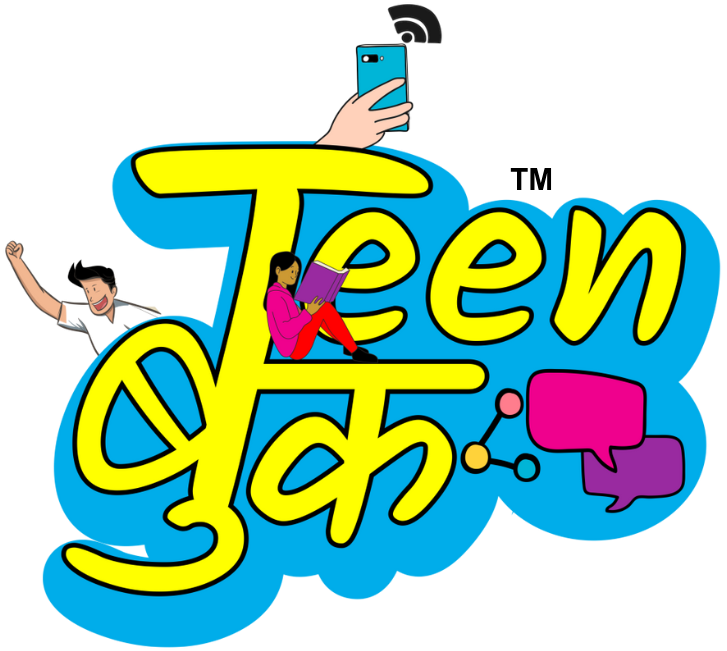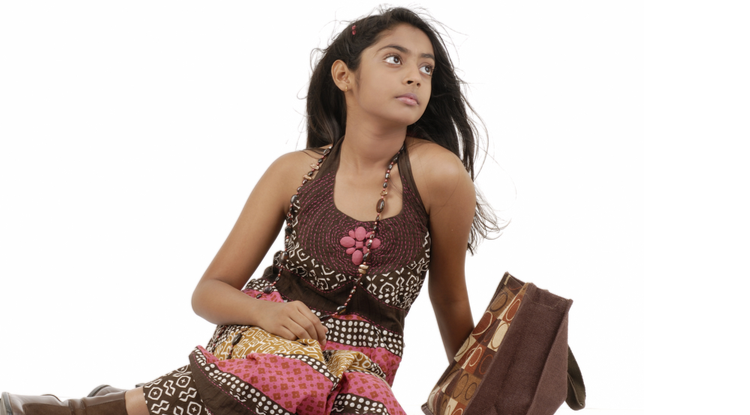Why don’t we get people at times: Understanding Empathy
Aarav, Riya and Rohan’s lunchtime debate takes an unexpected turn as they try to figure out the secret to stronger friendships and better understanding in their everyday lives. Want to figure this out too? Listen in to their Canteen talk.

Aarav and Riya were still buzzing from their last debate with Rohan about perspectives. Today, they were hanging out in the school courtyard when they saw Rohan.
“Hey! We never got to the empathy chat” Aarav called to him, munching on his sandwich.
“Empathy? Isn’t that like feeling sorry for someone?” Riya replied, puzzled.
“Not exactly,” Rohan smiled, joining them. “Empathy is about feeling what someone else feels, like stepping into their shoes. It’s like having a built-in radar for understanding people’s emotions. And it’s super important in daily life because it helps us connect with others, build strong relationships, and navigate tricky situations.”
“Okay, so how’s that different from sympathy?” Aarav asked.
“Good question! Sympathy is feeling pity for someone’s troubles, like saying ‘aww, that sucks.’ Compassion goes a step further; it’s wanting to help. But empathy is like being able to feel their pain as if it’s your own. It’s like when you see someone drop their ice cream, and you feel a little pang in your heart because you know how much that sucks.”
Why Empathy?
“Think of empathy as a magic glue,” Rohan said. “It holds friendships together, helps patch up fights, and makes relationships stronger. When you really understand what your friend is feeling, it’s easier to support them and avoid misunderstandings.”
“Like when Aarav’s upset because he didn’t get paneer in his lunch, and I feel his pain because I know how much he loves it?” Riya joked.
“Exactly,” Rohan laughed. “It’s about tuning into each other’s feelings and being there for one another.”
Developing Empathy
“And one of the best ways to develop empathy is through active listening,” Rohan continued. “That means really paying attention when someone is talking, not just waiting for your turn to speak.”
“Like when Riya goes on about her skincare routine for the millionth time, and I actually listen instead of rolling my eyes?” Aarav teased.
“Exactly,” Rohan nodded. “And active listening involves a few key steps. First, put away distractions, like your phone. Show that you’re fully engaged. Nod or say little things like ‘I see’ or ‘Go on’ to show you’re listening. And don’t interrupt—let them finish their thoughts.”
“Okay, but what if my mind starts wandering?” Riya asked.
“Good question,” Rohan replied. “If you find your mind drifting, bring it back by focusing on their words. Repeat back what they’ve said in your own words, like ‘So, you’re saying you love that skincare routine because it helps you feel confident and relaxed?’ This not only shows you’re listening but helps you understand their perspective better.”
“Also, ask open-ended questions,” Rohan added. “Instead of just ‘Do you like that routine?’ Try, ‘What do you love about that routine?’ This encourages them to share more about their feelings and experiences.”
“And try to see things from their viewpoint. If Riya loves her skincare routine because it makes her feel good and helps her unwind, understand that those feelings are what make it so special to her.”
“Got it,” Aarav said. “So, it’s about trying to understand where they’re coming from.”
“Exactly,” Rohan agreed. “The more you practise, the better you get at picking up on the little clues people give about how they’re really feeling. And that’s what makes empathy so powerful.”
Techniques for Seeing Situations from Different Viewpoints
“Here’s a trick,” Rohan said. “Next time you’re in a disagreement, pause and ask yourself how the other person might be feeling and why. Imagine you’re a writer in a movie, and you’re trying to write and understand each character’s motivations. It can totally change how you see things.”
“That’s a fun way to think about it” Aarav asked.
“Exactly,” Rohan said.
“For example, if a friend is upset because they weren’t invited to a party,” Aarav chimed in. “Instead of saying, ‘It’s no big deal,’ try to understand their feelings. Maybe they feel left out and hurt. Showing empathy by acknowledging their feelings can make a huge difference.”
“Exactly,” Rohan continued. “In conflicts, empathy can be your secret weapon. By trying to understand why the other person is upset, you can defuse tension and find common ground. It helps to remember that everyone has their own struggles and reasons for feeling the way they do.”
“So, empathy is like a superpower for peacemaking,” Riya said, smiling.
“Totally,” Rohan agreed. “It’s about seeing beyond your own perspective and recognizing the feelings and motivations of others. And the more you practise, the better you get at it.”
How Empathy Helps in Standing Up to Peer Pressure
“Empathy also helps you stand up to peer pressure,” Rohan said. “If you see someone being pressured or stereotyped, empathy lets you feel their discomfort and gives you the courage to stand up for them.”
Rohan nodded. “When you notice someone being left out or pushed to do something they’re not comfortable with, empathy lets you imagine how they must be feeling. It’s like having a radar that picks up on others’ emotions. This understanding can motivate you to take action and support them.”
“Like when everyone was pressuring Sam to skip class to go to the mall,” Aarav added. “I could see he was uncomfortable and worried about getting into trouble. Instead of joining in, I suggested we hang out after school instead.”
“Right,” Rohan agreed. “Empathy gives you the insight to see the bigger picture and the courage to do what’s right. It’s about understanding and caring for others, which makes you a better and more supportive friend.”
Self-Empathy and Self-Compassion
“Don’t forget self-empathy,” Rohan said. “Cut yourself some slack. If you’re having a tough day, treat yourself with the same kindness you’d give a friend.”
“And balance is key,” Rohan continued, “While it’s great to be empathetic, you also need to take care of yourself. Set boundaries so you don’t get overwhelmed. It’s like charging your phone—you can’t help others if your own battery is dead.”
“Got it,” Aarav nodded. “Empathy is like our superpower, but we need to use it wisely.”
Once again, Aarav and Riya’s chat with Rohan really hit home. They realised that empathy isn’t just some abstract concept; it’s about seeing things from someone else’s shoes, especially when you’ve grown used to your own for so long.
From that day forward, they made a pact to approach every debate and every situation with open hearts and open minds.


